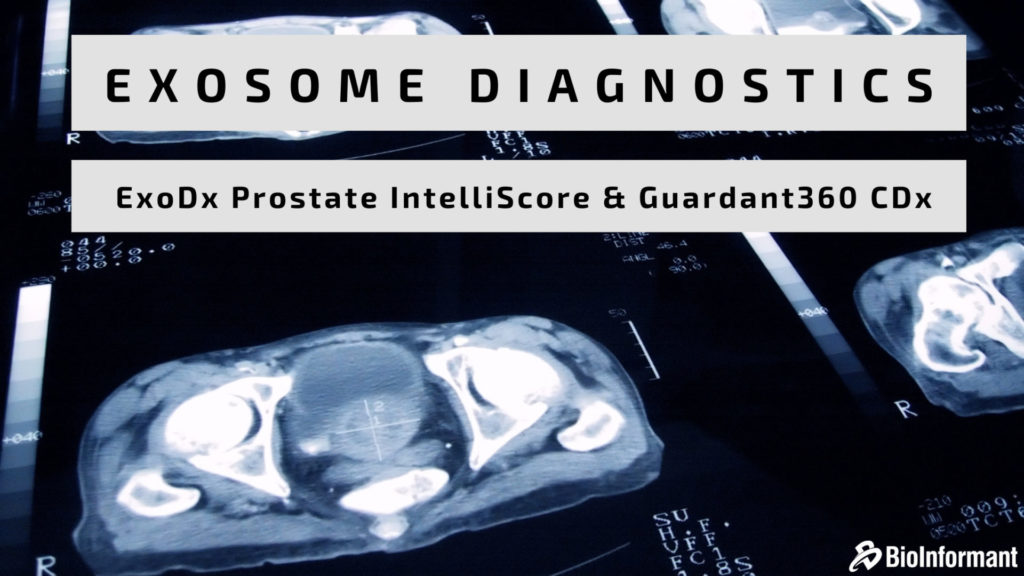While solid biopsies have several limitations, including but not limited to their invasive nature, liquid biopsies can offer a promising alternative. Today, a growing number of companies are developing exosome diagnostics for the non-invasive detection and prognosis of cancer and other serious medical conditions. This approach is effective because exosomes are present in almost all body fluids and critical valuable information about the cells from which they were released.
Exosomes present in urine can help in the diagnosis of many solid tumors, while exosomes found in the cerebrospinal fluid can be useful in the diagnosis of central nervous system (CNS) diseases. Similarly, exosome-based blood tests appear to enable the diagnosis of pregnancy-related disorders.
Because exosomes are found in diverse range of fluids—such as blood, urine, saliva, synovial fluid, amniotic fluid, semen, vaginal fluid, breast milk, serum and plasma, for example—the possibilities are endless.
Despite their incredible potential, only two exosome-based diagnostics have been approved to date, the ExoDx Prostate IntelliScore (EPI) Test and the Guardant360 CDx test.
ExoDx Prostate IntelliScore (EPI) Test
On June 17, 2019, the U.S. FDA granted Breakthrough Device Designation to Bio-Techne’s ExoDx Prostate IntelliScore (EPI) test, making it the first exosome-based liquid biopsy test to receive such a designation. The simple urine test can help many patients to avoid unnecessary prostate biopsies.
On October 10, 2019, the Medicare Administrative Contractor (MAC) National Government Services, Inc. issued a final Local Coverage Decision (LCD) covering the ExoDx Prostate IntelliScore (EPI) test for men who are being considered for an initial prostate biopsy.
As Bio-Techne describes it, this is the only exosome-based test that provides “actionable data” to help you decide if a physical biopsy is necessary. It is an practical diagnostic tool, because a large number of men aged 50 years of age and older can have a prostate-specific antigen (PSA) scores that fall between 2-10ng/mL, which for a PSA reading is considered to be the “gray zone”. For these patients, there is a not a clear answer as to whether they should undergo biopsy.
Thus, this simple, non-digital rectal exam, urine-based, liquid biopsy test provides a painless and effective alternative for millions of aging men. Because it only requires a urine sample, this test can be done through an at-home collection kit, allowing patients to avoid a doctor’s visit.
Today, more than 60 million patients in the U.S. are being covered for Bio-Techne’s ExoDx Prostate IntelliScore (EPI) test.
Guardant360 CDx
About a year later, on August 13, 2020, the U.S. FDA approved a simple test that detects genetic mutations found in circulating cell-free DNA (cfDNA). The test is called Guardant360 CDx and is made by Guardant Health. This approval was historic, because it was the first liquid biopsy companion diagnostic to use next-generation sequencing (NGS) technology to identify patients with specific types of mutations of the epidermal growth factor receptor (EGFR) gene in metastatic non-small cell lung cancer (NSCLC).
Meaning, it was the first FDA approval to combine the two technologies—next-generation sequencing (NGS) and liquid biopsy— into a single diagnostic test that can guide treatment decisions.
This assay uses two technologies. The first is called liquid biopsy, which uses a blood sample to provide genetic information about the patient’s tumor. The second technology is NGS, which uses large-panel genetic sequencing, known as high-throughput tumor profiling. The Guardant360 CDx assay uses NGS technology to simultaneously detect mutations in 55 tumor genes, rather than one gene at a time.
The Guardant360CDx, developed by Guardant Health is approved both to provide information on multiple solid tumor biomarkers and to help identify EGFR mutations in patients who will benefit from treatment with TAGRISSO (osimertinib). The Guardant360 CDx assay was granted a Breakthrough Device designation, in which the FDA provides intensive interaction and guidance to the company on efficient device development.
The Future of Exosome Diagnostics
Given these commercial approvals, other companies are also developing exosome diagnostics. These companies and their diagnostic focus are included below, presented in alphabetical order.
- Adipomics, Inc. – Developing an exosome-based diagnostic for Type 2 diabetes
- Beckman Coulter Life Sciences – Developing instruments for exosome diagnostic tests
- BioFluidica – Developing biofluidic chips for oncology tests for cancer
- BioVision, Inc. – Developing liquid biopsy tests
- Evomic Science, LLC – Developing urine-based exosome tests
- ExoCan Healthcare Technologies – Developing exosome-based cancer diagnostics
- Exosome Diagnostics, Inc. – Developed the FDA-approved ExoDx Prostate Test
- Exosome Sciences – Developing exosome-based tests to diagnose Alzheimer’s
- Exosomics, S.p.A – Developing exosome-based cancer detection technologies
- Guardant Health – Developed the FDA approved Guardant360CDx test for NSCLC
- Mursla, Ltd. – Developing exosome-based blood tests for cancers
- NanoSomix, Inc. – Developing an exosome-based Alzheimer’s test
- Theoria Sciences, Inc. – Develping exosome-based cancer detection technologies
